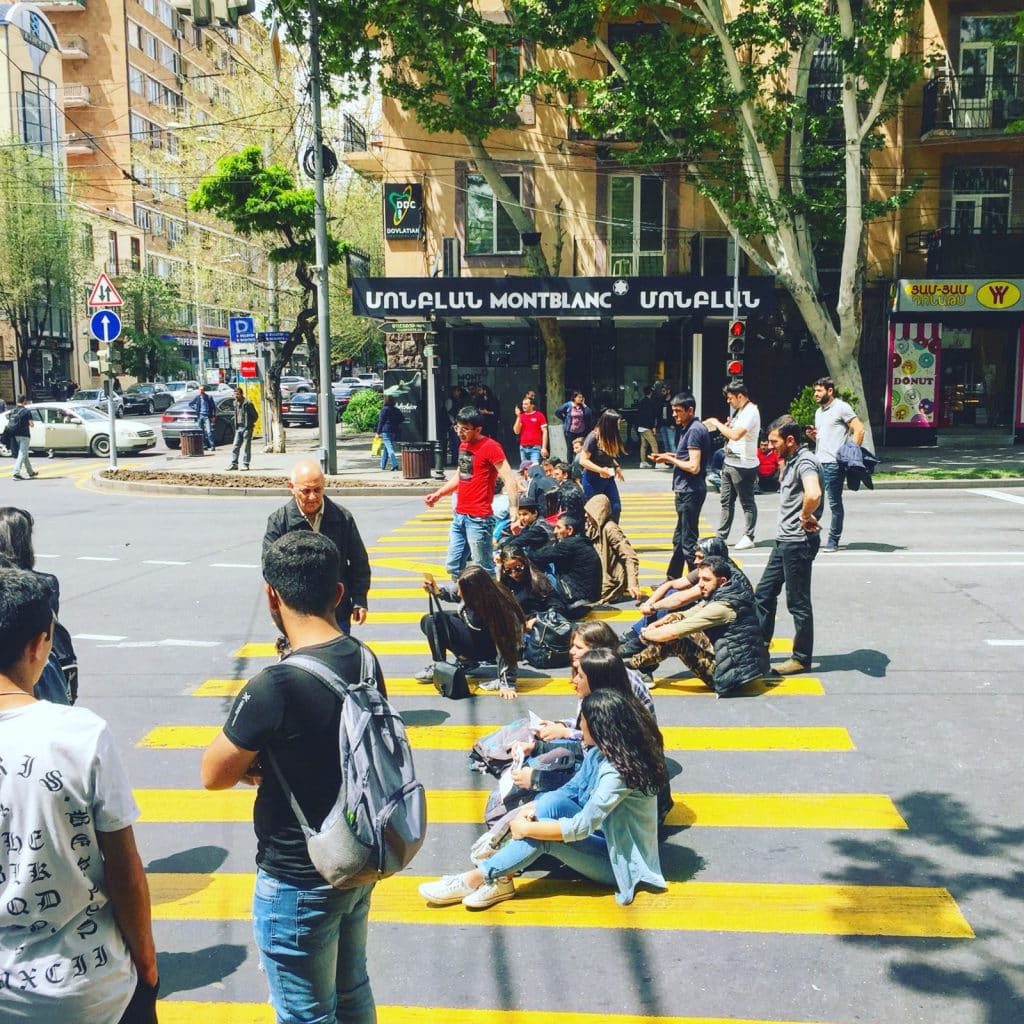After 11 days of mass protests in Armenia against Prime Minister Serzh Sargsyan, the latter decided to resign on 23 April. After a brief euphoria and celebrations in the streets, however, it appeared that the ruling party had no intention of giving up power by doing so. Although it admitted not to put forward its own prime ministerial candidate, it would still think about which candidate it would support, although there was only one candidate: protest leader Nikol Pashinyan.
On 1 May, during the parliamentary vote, after a long debate, the ruling party was the only one to vote against Pashinyan's candidature, thereby failing to get enough votes. By law, another attempt to elect a prime minister must then be made after seven days, i.e. on 8 May. If that also fails then early parliamentary elections will be held, organised by the ruling party.
Pashinyan left immediately after the vote on 1 May for Republic Square in Yerevan, where a large crowd had already gathered since that morning to watch the parliamentary debates live on big screens. There, Pashinyan called for the protests to continue the next day, bigger than ever. Despite a disappointing result, the atmosphere was mostly positive: many people saw it as just a matter of time until the ruling party realises that it has actually already lost.
The next day, protests and mass strikes began at quarter past 8 in the morning, as planned. More people participated than ever before. Capital city Yerevan was completely paralysed, with large groups of activists flattening all streets, intersections, government buildings and even public transport. People in the rest of the country also took to the streets en masse, flattening cities, villages and highways. Entire businesses joined the protests.
Activists in Yerevan went in groups past the homes of ruling party parliamentarians and scanned under their windows. At the end of the day, the ruling party's faction met behind closed doors, then announced that it would not only not put forward its own candidate on 8 May, but was also prepared to support a candidate supported by at least 1/3 of parliament. Pashinyan, meanwhile, once again assured of the support of the three other groups in parliament with a combined 47 seats out of 105, thus seems assured of a win. But we will not really know for sure until 8 May.
Want to know more about what these protests are about and how they started? Read more about the background here of the protests (in English). Also stay tuned to our Facebook, Twitter and website to follow for all information on the situation in Armenia.
By Marina Ohanjanyan





